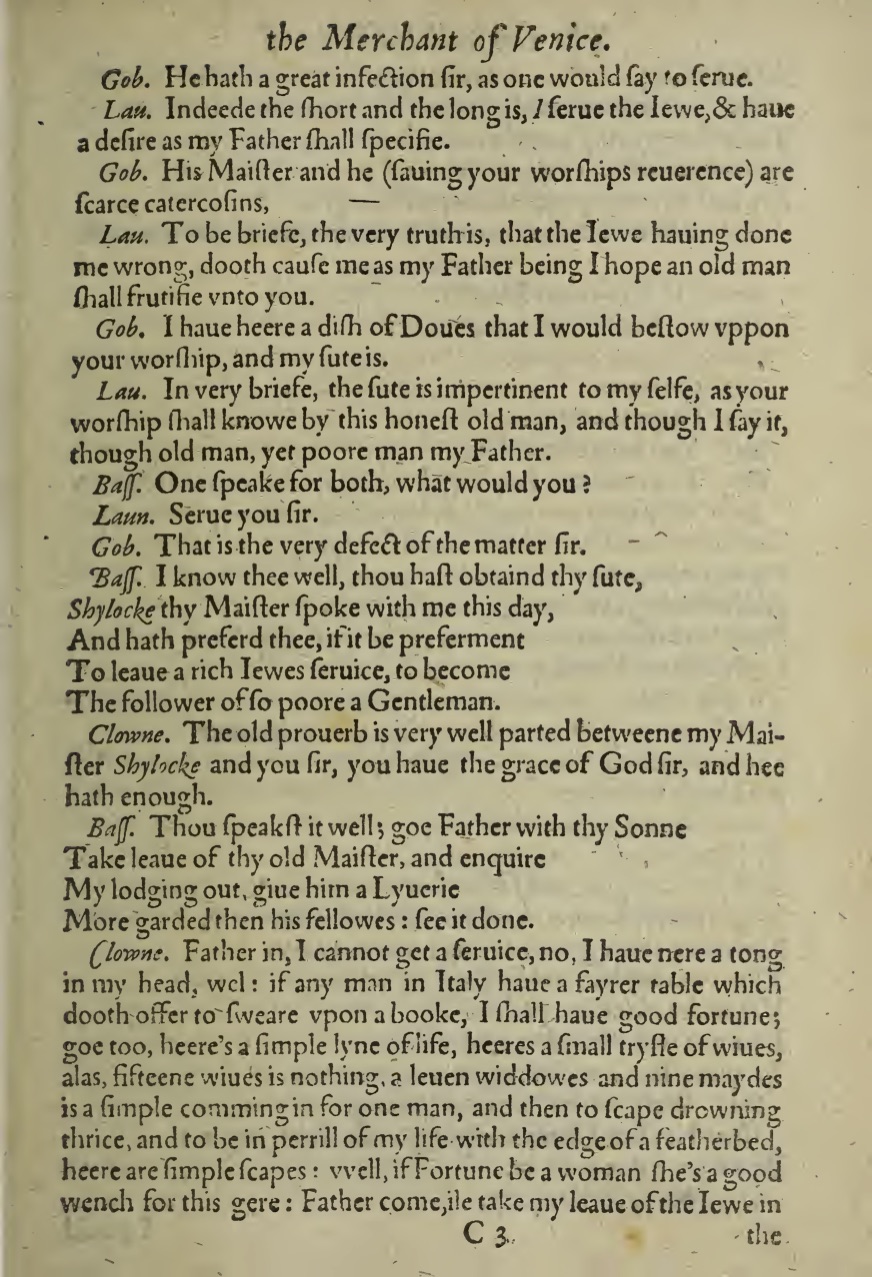Image credit: Rare Books & Manuscripts Department, Boston Public Library, copy G.176.16. The most excellent historie of the merchant of Venice. First Quarto. London: 1600.
Citing this page: Shakespeare, William. The Merchant of Venice, C3r. London: 1600. Cacodemon Digital Shakespeare. Edited by Mira Chadha, Grace Horne. Source edition: Rare Books & Manuscripts Department, Boston Public Library (copy G.176.16). http://cacodemonshakespeare.com/comedies/merchant/c3r.
References:
Barker, C.R. “Shackles in Shakespeare: On the Falsity of Personal Liberty in Renaissance England.” Liverpool Law Rev 35, 2014, pp. 25–42. https://doi.org/10.1007/s10991-013-9143-y
Battell, Sophie. Hospitality in Shakespeare: the case of The Merchant of Venice, Troilus and Cressida and Timon of Athens. PhD Thesis, Cardiff University, 2017. http://orca.cf.ac.uk/108599/
Davis, Robert C., and Benjamin Ravid. The Jews of Early Modern Venice. Johns Hopkins University Press, 2001, pp. 3-52. https://jhupbooks.press.jhu.edu/title/jews-early-modern-venice
Romano, Dennis. “The Regulation of Domestic Service in Renaissance Venice.” The Sixteenth Century Journal, vol. 22, no. 4. The Sixteenth Century Journal, 1991, pp. 661–677. JSTOR, www.jstor.org/stable/2542370.
Shakespeare, William. “The Merchant of Venice.” The Norton Shakespeare: The Essential Plays/The Sonnets. Edited by Stephen Greenblatt, et.al. 3rd ed.,W.W. Norton & Company, 2016, pp. 281-335.
